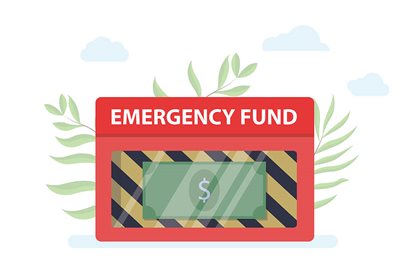According to People Magazine, 73 percent of Americans had at least one money-related New Year’s resolution in 2021. Based on this data, many Americans want to improve their personal finances, but they might not know where to start. In this guide are financial goals for everyone, whether you’re just starting to get a hold of your finances, or you’ve felt on top of things for a while.
Meet with a financial advisor
Meeting with a financial advisor can help you understand your current financial reality, and where you would ideally want to be, based on your current age and financial goals. Not sure what your goals are? They can help you with those as well. Additionally, they can provide great insights on how to structure your finances so that you’re better able to meet your goals.
Shelley Hertel is our onsite LPL representative at the Credit Union of Denver Investment and Retirement Center. Give her a call or email to start a conversation. 303·239·1179 shelley.hertel@lpl.com
Set a Budget
Creating and sticking to a budget throughout the year can help you stay on track with your savings and avoid overspending. It doesn’t matter if you use an app or put it down on paper, you just need to have a plan for your money each month. Your first month of budgeting won’t be perfect, but the key is to keep at it and keep making improvements.
Pay Off Your Debt
Do not feel alone if you’re currently struggling with debt. Over 60 percent of Americans have credit cards, and we collectively share $17 billion in debt. You may also have other forms of debt, such as school loans and other personal loans. When we have a large amount of debt, it can easily feel overwhelming.
The first step is figuring out just how much debt you have. Then, you can come up with a strategy on how to pay off your debt. There are several tried-and-true methods of paying down debt. One is the debt snowball method, where you focus on paying down your account with the lowest balance first, then move onto the next, while paying the minimums for each account.
Refinance your loans
One way to make your debts feel less overwhelming is to refinance them. Although this is not always the best solution for everyone, it’s worth looking into.
For instance, you could refinance all of your student loans into one single loan with a lower interest rate, or an interest rate that’s somewhere in the middle of all your rates. You could also take out a personal loan to pay off all of your credit cards or refinance your mortgage to take advantage of a lower interest rate.
For some people, refinancing your debt is a tactical strategy to take advantage of lower interests and end up owing less money in the long run. Sometimes, making large payments on a single loan feels less overwhelming than juggling several payments on credit cards with different payment rates.
Contribute To a Retirement Account
Are you currently contributing to a 401(k), if not, are you contributing to an IRA? The younger you are when you start saving for retirement, the easier it is to hit your goal. Your retirement savings goal can look entirely different from someone else’s. It depends on what age you plan to retire, and the type of lifestyle you want to lead.
If you’re employed, one of the best things you can do for yourself is take advantage of your company-sponsored retirement plan. If you’re lucky, your company will even offer contribution matching, which can double your investing power. If you don’t have a 401(k), good alternatives are traditional and Roth IRAs. Start contributing to a retirement account now rather than later. Even if you can only contribute a small amount at first, starting early gives compound interest time to work in your favor.
Build an Emergency Fund
Perhaps this will be your one and only financial-related goal in the new year. If so, know that this is enough. Many Americans don’t have an emergency fund and building one will boost your financial confidence! Plus, if you do encounter an emergency expense, you won’t have to get yourself further into debt. Having an emergency fund is an essential building block that will set you up for success in meeting the rest of your financial goals.
Start off with a smaller goal of saving up 1 months’ worth of living expenses. Once you’ve met that goal, set a second goal of saving up 3 months’ worth. Ultimately, you ideally want to work your way up to 6 months’ worth of savings. As long as you’re putting money toward this fund each month, you’re headed in the right direction.
Whatever financial goals you set for yourself Credit Union of Denver is here to help you achieve those goals. Check out our blog on How to Set a Financial Resolution and Stick to It.
Sources and enhanced by Credit Union of Denver